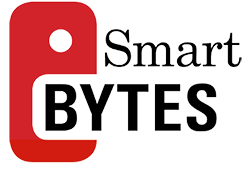Finding the Right Camp for A First-Timer
April 15, 2024

By Eve Kessler, Esq.
Bookshare is an online library of accessible eBooks and educational materials for children (and adults) with diagnosed language learning disabilities and other issues that make reading difficult. Members have access to over 400,000 titles, including textbooks, bestsellers, children’s books, young adult books, college prep and career books, newspapers and magazines. Books not already in Bookshare’s collection may be ordered.
Access to Bookshare is free for schools and for students in the U.S. with identified physical or learning disabilities that impair reading. For qualified individuals who are not U.S. students, unlimited access to Bookshare’s collection requires payment of a low annual subscription fee and a one-time setup fee.
Through Bookshare, members upload digital books of their choice to tablets, smartphones, computers, assistive technology devices or MP3 players and listen to the books. The reading experience can be customized depending on needs and preferences. For example, you can choose from multiple computerized voices and accents, adjust reading speeds, control font sizes, adjust background and type colors, highlight text, and have pictures in the books described.
Books can be read with digital apps such as Voice Dream Reader, Read2Go, and Kurzweil 3000-firefly; computer software, such as Kurzweil, Read & Write Gold, Capti Narrator, and Open Lore; and assistive technology from APH, HIMS, HumanWare, NLS, and Tobii Dynavox.
A recognized expert, qualified in the field of disability services, education, medicine, or psychology must complete and sign a Proof of Disability form attesting to the physical basis of the student’s visual, perceptual or other limiting disability.
Qualifying disabilities include visual impairments, such as blindness or low vision; severe learning disabilities that prevent students from being able to read standard print effectively, such as dyslexia; and physical disabilities that prevent students from being able to read print or use print books successfully, such as an inability to hold a book or turn a page.
Each disability category requires an appropriate and competent expert to qualify a student as having that specific disability; different disabilities may require different authorities. For example, a physician, ophthalmologist or optometrist may be required to confirm a student’s visual impairment; a neurologist, learning disability specialist or special educator may be the most competent professional to verify a student’s perceptual disability. Staff members of a college or university’s Disability Student Services may certify students in their school as having a qualifying disability for Bookshare purposes. At the college level, they may also act as the conduit to publishers, by providing the information needed to fulfill a textbook request.
This blog is based on the presentation “Bookshare: A Conversation with President Betsy Beaumon,” co-sponsored by Smart Kids with LD and the Westport (CT) Public Library. Eve Kessler, Esq., a former criminal appellate attorney with The Legal Aid Society, NYC, is co-founder of SPED*NET, Special Education Network of Wilton (CT) and a Contributing Editor of Smart Kids.